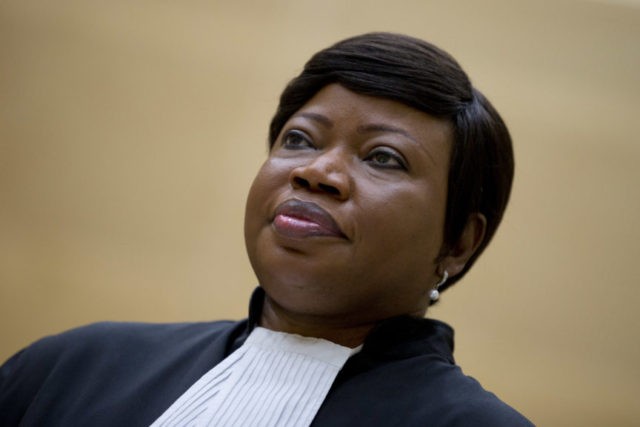Prosecutor Fatou Bensouda of the International Criminal Court announced on Thursday that she has launched preliminary probes of police and security forces in the Philippines and Venezuela, both accused of using excessive force against suspected drug traffickers and political demonstrators, respectively.
Bensouda said she is investigating allegations that government forces in Venezuela “frequently used excessive force to disperse and put down demonstrations,” as well as abusing demonstrators in detention. She acknowledged that some demonstrators have in turn been accused of assaulting security personnel.
As for the Philippines, she said that although some drug war killings “have reportedly occurred in the context of clashes between or within gangs,” it is alleged that “many of the reported incidents involved extrajudicial killings in the course of police anti-drug operations.”
Filipino lawyer Jude Sabio, who has presented evidence to the court, made it clear that charges could be filed against Philippine President Rodrigo Duterte and his top officials for crimes against humanity.
A Duterte spokesman nevertheless welcomed the ICC investigation because President Duterte “wants to be in court and put the prosecutor on the stand, to ask who prodded you to proceed to preliminary examination.”
In other words, as spokesman Harry Roque Jr. put it, Duterte plans to use the International Criminal Court proceedings to flush out “the domestic enemies of the state behind this.”
“He will assert the legality of the war against drugs as a valid exercise of sovereign powers and, therefore, the element required for a crime against humanity is lacking,” Roque predicted.
The regime of Venezuelan dictator Nicolás Maduro went even further over the top in responding to the ICC statement, promising complete cooperation with Bensouda but snidely dismissing her as a “tyrant-hunter” and stating she has no authority to pursue her “baseless accusations.”
The Venezuelans insisted all allegations have already been fully investigated, blamed anti-government demonstrators for the vast majority of the deaths, claimed the demonstrators were armed and trained by hostile foreign powers, and said the ICC probe was tantamount to an extortion shakedown.
“By opening a preliminary examination, the ICC prosecutor is sending a powerful message that her office is closely tracking the Maduro government’s egregious abuses,” retorted Jose Miguel Vivanco, the Americas director for Human Rights Watch.
“The Venezuelan judiciary has allowed impunity to flourish, but depending on the ICC’s decisions there may be another path for Venezuelan victims of abuse to have their day in court,” Vivanco said.
Human Rights Watch asserts that its own research shows Venezuelan security forces systematically “committed widespread abuses repeatedly over a period of several months in multiple locations across the country, including in controlled environments such as military installations.” Contrary to the claims of the Maduro regime, HRW believes Venezuelan officials have done virtually nothing to investigate these abuses or hold the perpetrators accountable.
Bensouda explained that under international legal principles, national jurisdictions are primarily responsible for investigations and prosecutions. She stressed that her preliminary probe is “not an investigation, but a process of examining the information available in order to reach a fully informed determination on whether there is a reasonable basis to proceed with an investigation.”
“There are no statutory timelines on the length of a preliminary examination,” the prosecutor noted. “Depending on the facts and circumstances of each situation, I will decide whether to initiate an investigation, subject to judicial review as appropriate; continue to collect information to establish a sufficient factual and legal basis to render a determination; or decline to initiate an investigation if there is no reasonable basis to proceed.”

COMMENTS
Please let us know if you're having issues with commenting.